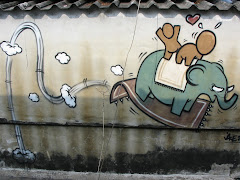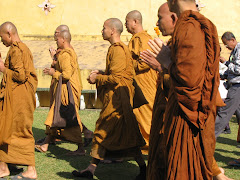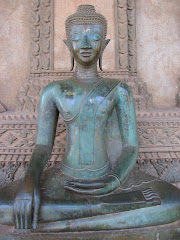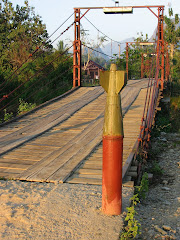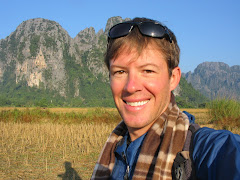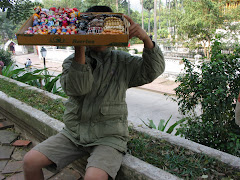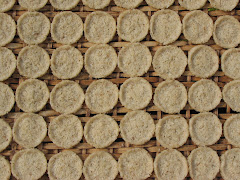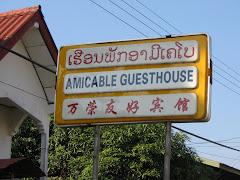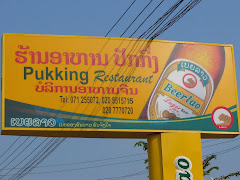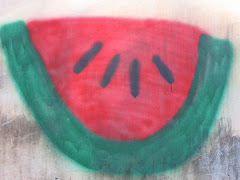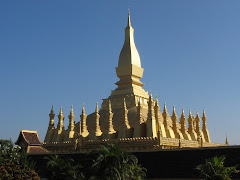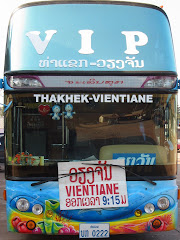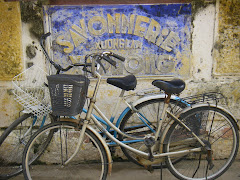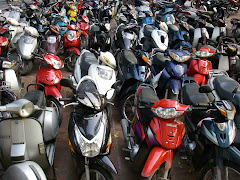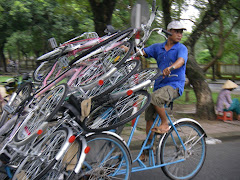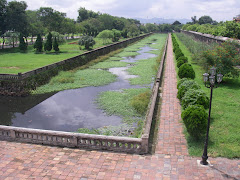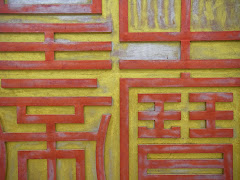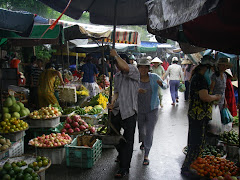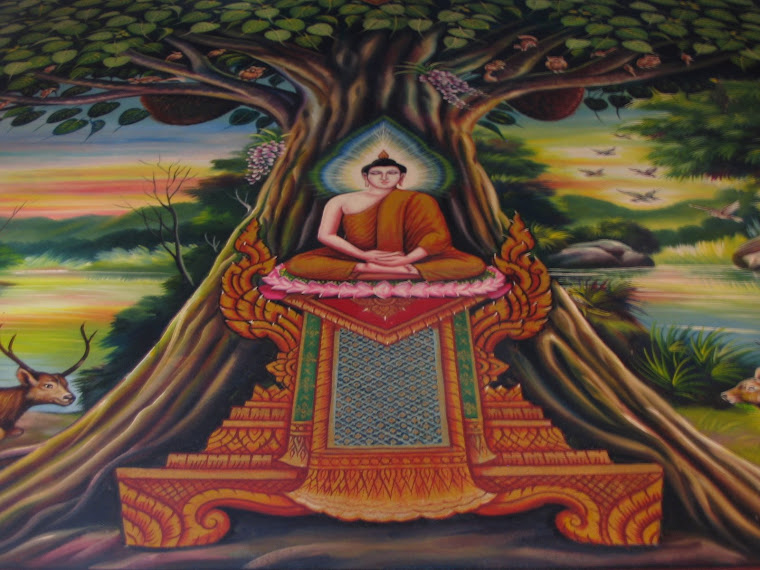
It's been two very quick weeks since I arrived at Bangkok's Hualampong train station and as I finally sit down to pound out another journal entry, I'm almost ashamed to admit that I'm cruising comfortably at an altitude of 37,000 feet somewhere above the Pacific and just to the right of Taiwan. For whatever reason, over the past couple weeks I've fallen prey to a severe case of blogger's block. No reflection on the city, of course – Bangkok is, after all, one of my favorite places in the world – but I think that once I unpacked my bags at my mom and dad's place downtown, especially in a city that I've visited and explored several time before, the "adventure" part of my adventure came to an end. No more scrambling for beds or hunting for a semi-edible meal. No more waking up to a completely foreign cityscape or countryside. No more concerns about being blatantly ripped off by market vendors and taxi drivers. Instead, I could let down my guard a little, re-visit my favorite corners of Bangkok, and best of all, at the end of the day I could head back "home" to enjoy the company of my parents (even if - especially if - that meant getting inexplicably sucked into a couple of episodes of "So you think you can dance" with my mother). Life is good.
Bangkok really is a city like no other – and certainly unlike any other place I've visited on this particular trip. With a 20th floor home base in the middle of downtown, I split my days by catching up to speed with the "real" world after three months on the road and setting out to explore the temples, neighborhood sois, markets, khlongs (canals), shrines, parks, forts, and tourist ghettos. With a sky train pass and access to the city's subway, river ferries, and khlong taxis most of the city is wide open to anyone willing to traverse shitty sidewalks, dodge crowds, street dogs, motorbikes (and the occasional elephant), and sweat a little in the t

ropical sun. Of course, any attempt to convey just what it is that Bangkok "is" within the confines of a blog entry would inevitably come up short. Instead, I've decided to describe each of my Bangkok highlights in a sentence or two:
Just down the street from my parent's building, Lumphini Park (Bangkok's largest green space) is the place to be for early morning local-style exercise, the occasional monitor lizard sighting, and hosts an annual street performer festival – bring your cardboard periscope! Khao San Road forms the backbone of the world (in)famous backpacker ghetto. A great place to buy pirated cds, crappy t-shirts, fake dreadlocks, get a tattoo, or have lunch with your Mom. How many other people can say that? Need to buy something (I mean anything) – head to Chatuchak Weekend market. I usually end up with a dehydration headache, sore feet, and a lame squeaky toy or two. Wat Arun (Temple of the Dawn) is beautiful 82-meter tall prang towering over the Nonthaburi side of the Chao Praya river. The temple is covered from top to bottom with pieces of broken pottery originally used as ballast in Chinese trading ships and by climbing about half way up you get an amazing view across the river to the Grand Palace and Wat Pho. My favorite high point, however, is the Golden Mount – a manmade hill and temple complex just down the Khlong Saen Saep from Thanon Withayu (Wireless Road). Next door to the Golden Mount is the Monk Bowl Village where three families of artisans continue to produce the hand-made metal bowls traditionally used by Buddhist monks to collect alms. You should see the loo

k of joy on the faces of the shopkeepers when my Mom walks down the alley – she apparently funnels a lot of business their way, myself included. Phra Sumen fort on the Chao Phraya is my favorite park in the city – it's the place to go when the Khao San freak show (a couple of blocks away) gets a little too freaky. The best foot massages in the Kingdom can be found nearby at a secret location. Enough said. Shooting blanks? Barren as the Mojave? Just want to see something weird? Check out the Lingham Shrine ("Pecker Park" to my Dad). It's tucked behind the Hilton on Wireless. Of course. Need a lucky charm? Take your pick from zillions at the Amulet Market next to Thammasat University. Like ping pong? Head to Patpong. Once again, enough said. China Town and Little India combine all the sights, sounds, smells, and chaos you would hope to find in a city like Bangkok – avoid the alleys if you are at all claustrophobic and watch out for the busy streets. I was saved from an indefinite curbside holding pattern by a sweet old lady when she grabbed my arm and pulled me along side as she lunged into traffic. Maybe she figured the traffic was more likely to slow for a sunburned and obviously confused farang. They weren't, but we survived. Those soi (s

treet) dogs that look unusually well-fed are "rice puppies" and you'd look that way too if all you (over)ate was rice. But, at least they're cared for, if not well cared for. A drive out to Kanchanaberi is a great way to spend a Saturday (especially if you're not the one in the driver's seat. Thanks, Dad). Just avoid squashing certain coins on the train tracks that cross the River Kwai. Lese majeste is no joke. Gawking at another man's rented girl is no joke either – I just missed what was shaping up to be a pretty good farang brawl on the sky train the other day when, due to horrible timing, the train arrived at my stop before the fists started flying. Christmas in Bangkok is always surreal – even more so when you see how deep this Buddhist city dives into the holiday spirit. After a series of deflated New Years due to the tsunami, random bombings, and political unrest, this year's celebration was amazing – the city sounded like a war zone as a dozen different firework displays simultaneously lit up the night. On a sadder note, nearly 60 people were killed in a nightclub fire shortly after midnight. Bangkok just can't seem to catch a break.
Yeah, Bangkok is quite a place. If you come for a visit – which I highly recommend – you'll likely be overwhelmed, intimidated, and possibly disgusted.....but you certainly won't be disappointed.
Finally, I want to thank Mom and Dad for everything – staying with you two in Bangkok was the icing on an incredible cake. I love you both.
 Perhaps travel cannot prevent bigotry, but by demonstrating that all people cry, laugh, eat, worry, and die, it can introduce the idea that if we try and understand eachother, we may even become friends - Maya Angelou
Perhaps travel cannot prevent bigotry, but by demonstrating that all people cry, laugh, eat, worry, and die, it can introduce the idea that if we try and understand eachother, we may even become friends - Maya Angelou























